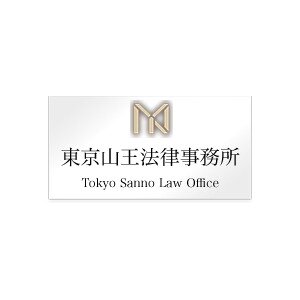Best Tax Lawyers in Japan
Share your needs with us, get contacted by law firms.
Free. Takes 2 min.
Or refine your search by selecting a city:
List of the best lawyers in Japan
About Tax Law in Japan
Tax Law in Japan is a comprehensive system that governs the collection of taxes by the national and local governments. It includes income tax, corporation tax, consumption tax (similar to VAT), and other types of taxes, which are pivotal to Japan's economy. The Japanese tax system is characterized by a progressive rate structure, especially for income tax, and has undergone various reforms to adapt to the changing economic landscape. Both residents and non-residents who have earned income in Japan are subject to taxation, with specific exemptions and deductions available that can influence tax liabilities.
Why You May Need a Lawyer
Engaging a lawyer for tax-related matters in Japan may be necessary in a variety of scenarios. If you are a business owner navigating the complexities of corporate tax, legal help can assist with compliance and optimization of tax positions. Individuals dealing with inheritance or gift taxes may also require expert legal advice to understand obligations and potential exemptions. Additionally, if you are facing audits or disputes with tax authorities, a lawyer can represent your interests and ensure your rights are protected. For expatriates, understanding cross-border taxation issues can be complex, necessitating professional guidance to avoid double taxation.
Local Laws Overview
Japanese tax law encompasses a variety of local regulations that can affect both individuals and businesses. Key aspects include:
- Income Tax: Both residents and non-residents who earn income in Japan are required to file income taxes. Residents are taxed on their worldwide income, while non-residents are taxed only on their Japanese-sourced income.
- Consumption Tax: The consumption tax rate is currently set at 10%, encompassing both national and local components. Businesses must register and comply with consumption tax requirements.
- Corporate Tax: Japanese corporations are subject to national corporate tax, local enterprise tax, and inhabitants tax, each with its own rate structure.
- Inheritance and Gift Tax: These taxes are levied based on the residency of both the donor/deceased and beneficiary, which can impact tax liability significantly.
- Tax Treaties: Japan has numerous tax treaties with other countries to prevent double taxation and facilitate international investment.
Frequently Asked Questions
What is the tax year in Japan?
The tax year in Japan runs from January 1 to December 31.
Who is considered a resident for tax purposes in Japan?
A resident is someone who has a domicile in Japan, or has resided in Japan for more than one year.
What is the process for filing tax returns in Japan?
Tax returns are typically filed by March 15 of the following year. Returns can be filed electronically or by submitting necessary documentation to the local tax office.
Are there any significant deductions available for individual taxpayers?
Yes, deductions in Japan's tax system include those for social insurance premiums, medical expenses, life insurance, and more.
How are foreign income and overseas assets reported?
Residents of Japan must report their worldwide income and disclose overseas assets exceeding a certain threshold.
What is the penalty for late filing or payment of taxes?
Penalties can include fines, interest on overdue taxes, and other charges, which increase with the duration of the delay.
How is consumption tax different from sales tax?
Consumption tax is levied at a consistent rate and is similar to VAT, applied at each stage of the sales process, rather than just at retail.
Is there a tax credit available for foreign taxes paid?
Yes, Japan offers a foreign tax credit to avoid double taxation on the same income.
How can expatriates ensure compliance with Japanese tax laws?
Expatriates should seek professional advice for cross-border tax issues and consider filing for applicable exemptions or treaty benefits.
What is the government's approach to tax evasion in Japan?
The Japanese government takes a stringent approach to tax evasion, employing audits and investigations to ensure compliance.
Additional Resources
For more information, individuals and businesses can refer to the following resources:
- National Tax Agency (NTA): The NTA provides comprehensive guidelines, forms, and updates on tax regulations.
- Japan Federation of Certified Public Tax Accountants' Associations: A professional body supporting tax accountants and offering resources for taxpayers.
- Ministry of Finance Japan: Oversees fiscal policy, including tax, and offers insights into current tax policies and laws.
Next Steps
If you require legal assistance for tax issues in Japan, it is advisable to consult with a qualified tax attorney or accountant. Start by:
- Gathering your financial records and relevant documents.
- Identifying specific areas or issues where you need assistance.
- Researching and selecting a legal expert or tax professional with experience in Japanese tax law.
- Contacting the professional for an initial consultation to discuss your situation and explore possible solutions.
Lawzana helps you find the best lawyers and law firms in Japan through a curated and pre-screened list of qualified legal professionals. Our platform offers rankings and detailed profiles of attorneys and law firms, allowing you to compare based on practice areas, including Tax, experience, and client feedback.
Each profile includes a description of the firm's areas of practice, client reviews, team members and partners, year of establishment, spoken languages, office locations, contact information, social media presence, and any published articles or resources. Most firms on our platform speak English and are experienced in both local and international legal matters.
Get a quote from top-rated law firms in Japan — quickly, securely, and without unnecessary hassle.
Disclaimer:
The information provided on this page is for general informational purposes only and does not constitute legal advice. While we strive to ensure the accuracy and relevance of the content, legal information may change over time, and interpretations of the law can vary. You should always consult with a qualified legal professional for advice specific to your situation.
We disclaim all liability for actions taken or not taken based on the content of this page. If you believe any information is incorrect or outdated, please contact us, and we will review and update it where appropriate.
Browse tax law firms by city in Japan
Refine your search by selecting a city.















